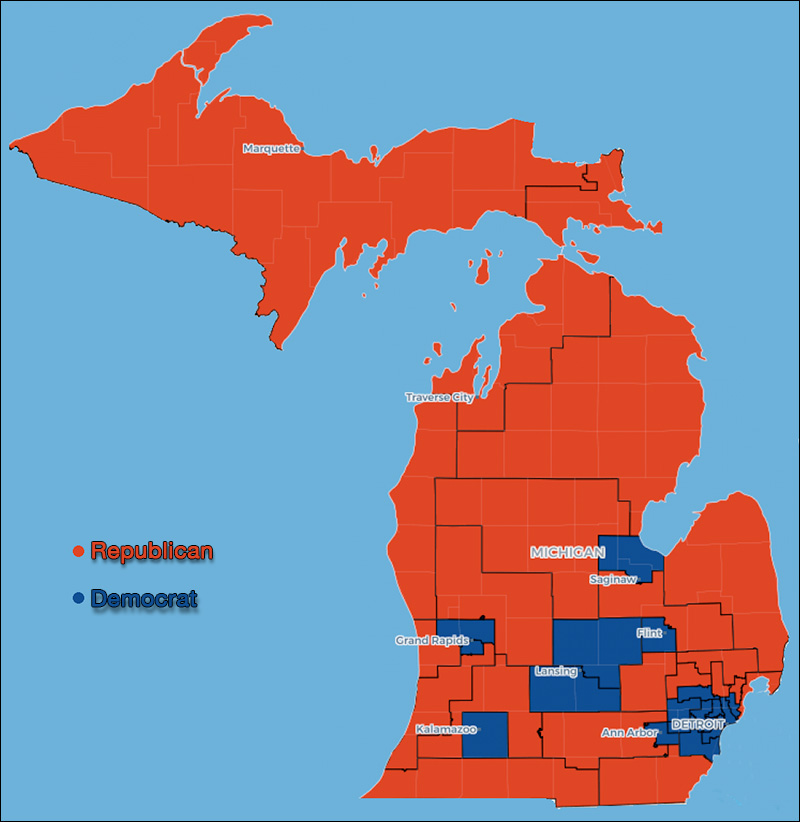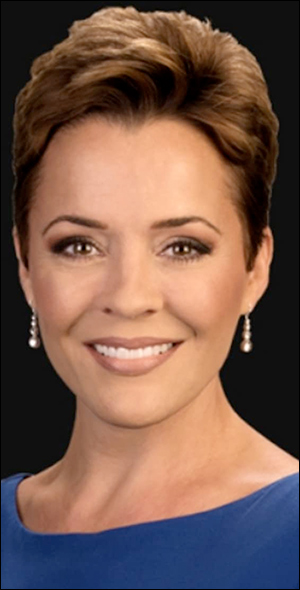By Jim Ellis — Thursday, July 11, 2024
President
National Polls: Biden, Better Than Others — Emerson College, after releasing their swing state results two days ago, publicized their latest national data (July 7-8; 1,370 registered US voters; multiple sampling techniques) that tested former President Donald Trump against President Joe Biden, and then individually opposite other supposed potential replacement presidential nominees.Paired with President Biden in the head-to-head ballot test, Trump posts a 46-43 percent advantage. If Vice President Kamala Harris were the party nominee, Trump would lead by a much larger 49-43 percent. Opposite California Gov. Gavin Newsom, the Trump advantage is 48-40 percent, and it extends to 48-38 percent if Gov. Gretchen Whitmer (D-MI) were his opponent.
Once again, we see further evidence that despite the negative talk surrounding President Biden since the CNN presidential debate, he still appears to be the Democrats’ strongest option.
Rep. Mark Takano: Biden Losing in His District — Reports are circulating that California Rep. Mark Takano (D-Riverside) is quoting from a poll of his CA-39 district that apparently shows President Biden losing among the congressman’s constituents. Assuming the accuracy of the poll, this would be a significant data point. President Biden carried the district 62.0 – 35.8 percent in 2020, and Rep. Takano won re-election here in 2022 with 57.7 percent of the vote in the post-redistricting 39th District.
CA-39 sits wholly within Riverside County and contains the city of Riverside. It is a largely minority district. The Voting Age Population figure for Hispanics is 58.5 percent as compared to 22.4 percent for non-Hispanic Whites. The FiveThirtyEight data organization rates the seat as D+23. The Dave’s Redistricting App statisticians calculate a 61.6D – 36.4R partisan lean based upon vote history. The Daily Kos Elections statisticians rank CA-39 as the 111th-safest seat in the country. Though national polling doesn’t suggest that the president is in dire political straights, a poll such as this in a safe Democratic congressional district may.
Senate
Wisconsin: Another Split Poll — Again, we see the familiar pattern from a survey where former President Trump is leading in a state as is the Democratic Senate candidate. A Republican polling firm and a Democratic survey research operation again combined efforts to conduct a Wisconsin poll for the AARP organization (Fabrizio Ward & Impact Research; June 28-July 2; 1,052 likely Wisconsin voters; live interview & text). They found former President Trump leading President Biden by a 44-38 percent margin. (The CNN presidential debate was June 27.) When moving to the Senate race, however, it is the Democratic candidate, incumbent Sen. Tammy Baldwin, who leads by a similar margin, 50-45 percent.
This pattern of Trump running well ahead of the Republican Senate candidate is present in several other states. This could be due to the voters being more familiar with the incumbent Democrat, or potentially the participants deliberately splitting their ticket so as not to give Trump too much power.
It will be interesting to watch what the Republican strategists do to break this syndrome, and whether their approach will work. For the GOP to maximize their opportunities on a favorable national Senate map, they must secure multiple conversion seats in order to protect themselves against favorable Democratic maps in the 2026 and 2028 election cycles.
House
AZ-1: Dead Heat Dem Primary — Arizona’s 1st Congressional District will feature a very tight contest between Rep. David Schweikert (R-Fountain Hills) and whomever the Democrats nominate from their crowded Aug. 6 primary election. The FiveThirtyEight data organization rates the 1st CD as R+7, but the Daily Kos Elections statisticians project the seat as the 18th most vulnerable in the Republican Conference. President Biden won here in 2020 by a narrow 50.1 – 48.6 percent margin.
A recent Noble Predictive Insights survey of the 1st District likely Democratic primary voters (June 25-27; 420 respondents; text) see ballot test results that place almost all of the candidates in position to win the upcoming party primary. The eventual winner will move into a toss-up general election campaign against Rep. Schweikert who won re-election two years ago with only a 50.4 – 49.6 percent margin against businessman Jevin Hodge. Hodge chose not to seek a rematch despite his strong showing in the 2022 campaign.
Former Arizona Democratic Party chairman Andrei Cherni and ex-state representative and physician Amish Shah are tied for first place with just 16 percent of the vote apiece according to the Noble poll. Following closely with 14 percent is former news anchor Marlene Galan Woods, the widow of late Attorney General Grant Woods (D). Investment banker Conor O’Callaghan then trails with eight percent support. A full 35 percent say they are undecided. Therefore, this primary will become a political shootout in the closing weeks.







